Description
The Art of Caring for People with Intellectual Disabilities considers how the skills and attitudes of a carer can elevate the life of the person they care for.
The book is based on Acceptance and Commitment Therapy (ACT) and asks carers to analyse their own core values in relation to their role and to identify strategies to help them fulfil their values.
It explores the multifaceted nature of the caring role – from carer to nurse to companion and beyond – and how to overcome the range of challenges involved in caring for people with intellectual disabilities using the concept of ACT to enhance the wellbeing of both carers and those they care for.
Audience
Learning disability specialist clinicians, front-line care staff, nurses and allied health professionals; students of these disciplines; professional and family caregivers of people with intellectual disabilities and care provider organisations.
Details
Publisher: Pavilion Publishing and Media Ltd
ISBN: 9781803882628
Publication Date: May 2023
Content
Introduction
1. The role of the carer
2. What is intellectual disability?
3. Enhancing quality of life
4. Increasing caring skills
5. Challenging behaviour
6. Physical and mental health
7. Reducing loneliness
8. The caring relationship
9. The art of leadership
10. Pulling it all together
Authors
Professor Robert S. P. Jones is Honorary Professor of Clinical Psychology at Bangor University, UK, and a retired Consultant Clinical Psychologist. He was formerly Head of Adult Clinical Psychology Services for Learning Disabilities in North Wales, and has held various senior positions in academia and the NHS over
several decades. He is the author of over 100 peer-reviewed publications and several books. Before training in clinical psychology, Rob was a care worker for people with severe intellectual disabilities.
Dr Jonathan Williams is a Principal Clinical Psychologist in an NHS Learning Disabilities Service. He has over two decades of experience within psychology and specialises in supporting adults with intellectual disabilities, building on his formative experience as a support worker. He has written a wide range of academic papers about
supporting people with intellectual disabilities.
Click here to watch a video made by the authors introducing The Art of Caring.

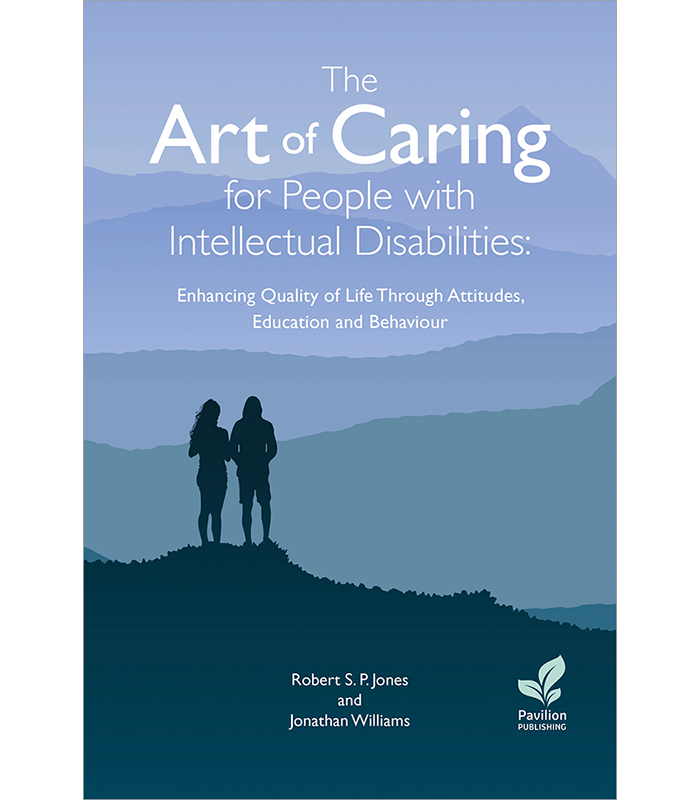
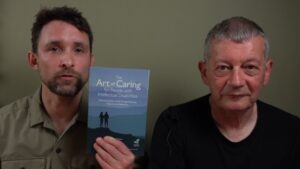
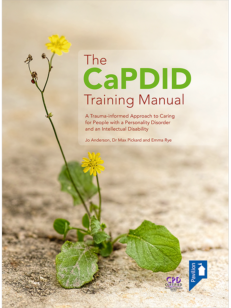
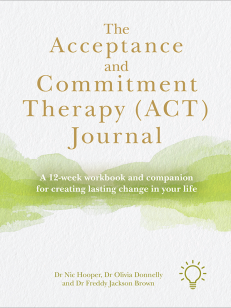
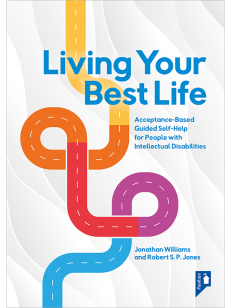

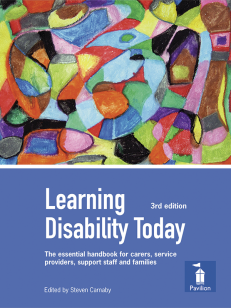
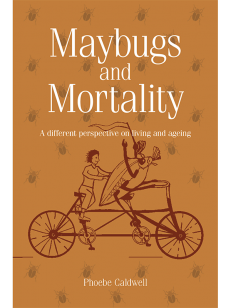
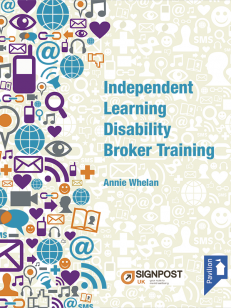
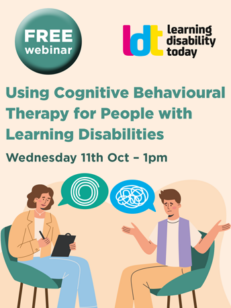
Biza Stenfert Kroese (BSc, MSc, PhD), Consultant Clinical Psychologist and Associate Professor in Clinical Psychology, School of Psychology University of Birmingham, UK –
Three things, that I noticed at first glance, drew me to this book.
First, the authors are well known and have for decades brought an impressive wealth of experience, knowledge and expertise to the academic and clinical areas relevant to people with intellectual disabilities. Any book written by them is likely to be not just fascinating but also very useful for anyone interested in working with people with intellectual disabilities.
Second, the title of this book emphasises the art of caring which suggests to me the opposite of the simplistic, rule-bound, uniform, bureaucratic systems often imposed on this complex part of the care sector. The word ‘art’ makes us aware that caring for people with complex needs requires a thoughtful and creative approach and, just like artists, carers must be allowed and supported to reflect on their attitudes, their practice and their own needs and well-being in order to be able to provide good and consistent care.
Finally, the fact that this book is about caring for people with intellectual disabilities at a time when the number of shocking scandals exposed in care settings appears to be increasing rather than reducing, makes this book timely and topical. It has the potential to have a much greater impact on care provision than the many dry, official reports produced in response to malpractice, most of which are now, I have no doubt, gathering dust on policy makers’ and commissioners’ shelves.
It is so easy to blame our front-line carers when things go wrong yet Jones and Williams have managed to avoid scapegoating by producing a book that is accessible, positive and firmly on the side of carers. Personal stories illustrate the deep respect and admiration these authors have for people who provide hands-on care and they have woven into their narratives the core values on which the book is based.
They have also been able (effortless it seems) to explain complex psychological concepts and theories such as attachment, assertiveness and the impact of trauma and how these impact on psychological well-being and behaviour. The explanations and the causative links they make are firmly based on robust empirical evidence yet jargon, acronyms, numbers and endless references have been avoided. This makes the text refreshingly simple to read and understand; yet for those interested, the final chapter provides a number of useful suggestions for further reading and research.
Were it not that my copy of this book is electronic, it would by now already be well-thumbed. A ‘must read’ for all those working with people with intellectual disabilities!
Professor Nigel Beail, South West Yorkshire Partnership NHS Foundation Trust & University of Sheffield –
On a positive note, this is an excellent book. However, it is sad that is being published while the outcomes have been publicised of two further inquiries into poor and abusive care provided by some carers of children and adults who have intellectual disabilities. Such inquiries cause us to reflect and motivate us to try and prevent such things again. Rob and Jon’s book can help us in that endeavour. They take us back to the basics of what the role of the carer is and above all the central role of relationships. We have many exceptional carers of people who have intellectual disabilities, and they capture the essence of them. They distil what the art of caring is and liken it to multiple components that have a liquid texture that flow together in a subtle and powerful way. They write in a personal way for a wide audience and explain the science behind the art. This can only help us improve the lives of those we support and care for.
Dr Alick Bush –
As a proponent of Positive Behavioural Support, I have found The Art of Caring to be an invaluable resource to enable carers to deliver effective support to people who have intellectual disabilities, especially those who sometimes display behaviours that challenge us. Too often we have focused solely on the techniques and “science” of designing support plans, defining intervention goals and gathering data to evaluate our plans. This book provides the adjunct to this approach; the art of how to support people compassionately in ways that will promote the overarching umbrella principle, which must be to increase the person’s quality of life.
The Art of Caring provides a sensitive insight into the typical lives and experiences of people with intellectual disabilities. The authors set out clear arguments that demonstrate how the building blocks of quality of life and happiness, that are so important to the general population, are often absent in the lives of people with intellectual disabilities. Instead, they all too often experience empty, lonely and disengaged lives. The book provides a blue print for carers, to enable them to address this mismatch. It clearly sets out the importance of having an understanding of the causes of disengagement and poor quality of life, and the steps that carers can take to start to address these factors.
The authors successfully set out how important it is to have an understanding of the dual contributions of trauma and insecure attachments that shape the lives of so many people with intellectual disabilities. They outline the implications of this perspective for carers who work in this field, and the steps that they can start to take to counter these experiences. They describe the characteristics and subtle indicators of empathic and compassionate care that can create the setting for the development of secure attachments- this is the “art of caring’. Nowhere is this more important than when carers support someone whose behaviours may be described as challenging.
The book sets out the importance of changing a mindset that the key role of the carer is to reduce the frequency of a particular challenging behaviour towards a belief that the main role is in fact to increase the quality of life of the person. The art of caring promotes a more compassionate way of helping the person who is being cared for. As the authors clearly demonstrate: “The art of caring involves being able to provide the right kind of support at the right times in order to ensure that the person has a life with social connections, opportunities for learning, and a safe and comfortable home environment. This should contribute both to the prevention and treatment of challenging behaviour”. This book describes how to achieve this.
The book describes how the skills of listening and assertive advocacy can be combined with an underlying values system. It provides practical exercises to help the carer to work out what motivates them to carry out this work and to explore their own values as a carer. It describes techniques to adopt mindful listening which is particularly important when supporting people who may have limited verbal communication.
I thoroughly recommend this book to anyone involved in the care of people who have an intellectual disability. It provides an invaluable framework for anyone who is embarking on a career in care. The exercises that are set out in each chapter provide a great resource for leaders and clinicians who work with care teams to support them to deliver “principled versus technique-led interventions”.
Emeritus Professor Roy McConkey OBE, PhD, Ulster University, Northern Ireland –
Care workers in health and social services are under-appreciated and under-paid. This book eloquently expounds the many roles undertaken by care-workers and the artistry required in creating caring relationships with people who have intellectual disabilities.
The book is not based on wishful thinking. Rather the authors bring years of personal experience in working alongside many hundreds of carers during their long careers as clinical psychologists and their advice is rooted in up-to-date scientific evidence.
New recruits through to long-serving care-workers will benefit greatly from reading it. The authors’ conversational style and accessible language makes for an enjoyable and informative experience. Carers working with other persons needing care – such as the elderly and those with mental health problems – will also gain from it. At a minimum, the book will boost their morale and pride in their work. But the greater prize would come if service managers and commissioners took time to reflect on its core message that caring for others is the hallmark of a humane society. This might help to explode the complacency and complicity of modern society in ensuring care-workers are among the lowest paid professionals.
Professor Ruth Northway OBE, FRCN, PFHEA –
We recognise great care when we see it but trying to identify all that goes in to creating this can be difficult to do. By focusing on the art of caring this book both identifies the key elements of such care and provides the reader with practical strategies they can use to develop the care and support they provide in order to enhance quality of life. It is readable, practice focused but also encourages professional self-reflection and development.
Developing and maintaining professional relationships with those we work alongside is fundamental to ensuring person-centred care and enhancing quality of life. However, in developing such relationships there are challenges and tensions that need to be managed and herein lies the importance of developing the ‘art’. This text not only recognises the centrality of relationships for people with intellectual disabilities but also encourages the reader to think critically about such relationships and how they might best develop them with the people they support.
Whilst all the chapters are very relevant to developing professional practice, as a learning disability nurse I was particularly pleased to see the chapter relating to physical and mental health. Most importantly, it highlights the role of those who work alongside people with intellectual disabilities in both health promotion and in providing support in times of ill health.
Dr Vaso Totsika, Associate Professor in Intellectual Disability, Division of Psychiatry, University College London –
We have all come across them at some point in our lives. Those people who are charismatic. Charismatic carers in whose company you want to be, the ones who make you feel special and valued. But how do they do it?
In this book, Jones and Williams demystify the charisma by telling us it is not a gift people are born with but a skill that can be developed, a skill that can be nurtured and elevated into an art form. The art of caring. As a reader I was drawn to their careful analysis of what makes a good carer. I liked seeing the art broken down into individual behaviours that anyone could do with a bit of practice. As an academic researcher in this field, I marvelled at their careful weaving together of behaviour science and psychological science drawing on the latest evidence about effective practices to improve quality of life for people with an intellectual disability.
They don’t shy away from addressing the issue of caring in the presence of challenging behaviours. While there is ample evidence on effective approaches to managing (read ‘reducing’) challenging behaviour drawing on a long history of applied behaviour analytic approaches, Jones and Williams address something we all know but evidence currently ignores: managing of challenging behaviours takes place in the context of human relationships that have a long history. I am not keen on the word attachment (for many reasons), but Jones and Williams really shine the light on how evidence from attachment research can be thought of alongside evidence from behavioural approaches when we try to understand why a person is behaving the way they do and how we can help them. Emerging evidence in the field speaks to the importance of both approaches and I am convinced that future models of care will integrate these two significant fields.
Professor Rudi Coetzer, Clinical Director, The Disabilities Trust –
Rob Jones and Jonathan Williams have written a beautiful, sensitive, and thoughtful book. The Art of Caring for People with Intellectual Disabilities covers many important topics in a very accessible way. Readers are reminded of some of the universal skills and values that underpin all health and social care. These include for example the importance of language. The langue we use can have powerful effects on those we come into contact with. This book reminds us of that.
It also reminds us of the often-forgotten skill of listening. Actively listening, not keeping quiet whilst committing most of our attention to formulating what we want to say, but truthfully immersing ourselves in the other person’s story. The Art of Caring for People with Intellectual Disabilities is also fabulously practical. Do we ever think about how difficult it might be for someone to attend a hospital appointment? What if they are frightened of hospitals, or find it difficult to find the words to explain what is ‘wrong’ with them?
Other topics include loneliness, and how to individualize each person’s care. I know both Rob and Jonathan from my days back in the NHS. Rob and Jonathan are excellent scientist-clinicians who care deeply for those they come into contact with, and who they are responsible for. The Art of Caring for People with Intellectual Disabilities captures who Rob and Jonathan are, and as a result in a sense is a very visceral book. It makes you think, reflect, feel, and sometimes even makes you smile – I certainly did whilst reading chapter 9 where I was reminded of imposter syndrome when we ‘graduate’ to managerial or leadership roles!
In summary, for me, in this beautiful book, Rob and Jonathan have captured very compassionately the tensions between ethics, rules, knowledge, values, caring, and ‘doing the right thing’ for those we ‘mind’, where there aren’t always ‘right’ answers, irrespective of which population you work with. I wish they wrote this book a long time ago.
Nick Andrews, Research and Practice Development Officer, Developing Evidence Enriched Practice (DEEP) programme, School of Health and Social Care, Swansea University –
Over the past twenty years, social care has become increasingly bureaucratic, and in many ways, has shifted from relational to procedural practice. Person-centred care has gone down the road of individualised choice and control rather than nurturing and sustaining meaningful, reciprocal relationships and the prevailing policy mantra is for independence, rather than interdependence. This book is wise and refreshing in its call to put relational practice central stage. In so doing, the authors go to the heart of what it means to truly care for people with intellectual disability.
Grounded in years of practice experience and the research literature, the authors spell out how to nurture and sustain rewarding and impactful caring relationships. In his later life, Carl Rogers, the founder of person-centred counselling came to realise that healing came through the creation of relationships, within which people heal themselves. This book builds on this truth. It challenges detached professionalism and individualism and envisages a world of social care within which warm humanity prevails, a world in which everyone has something to contribute and receive. I would recommend this book to anyone involved in frontline practice, service design or workforce training.
Dr Nollaig Heffernan, Independent Management Consultant –
Reflecting on their expansive careers in Clinical Psychology, Professor Jones and Dr Williams deconstruct the roles of those who inspired and enthralled them by their exceptional skill set in caring for people with intellectual disabilities. The authors leave us with such a deep impression of the artful carer that we are in no doubt that their presence is life-changing in relationships and situations beset with vulnerability, challenges, and frustration. Filled with piercing insights and engaging anecdotes, the combination of theoretical understanding with real-world experience, make this an essential read for those caring for people with intellectual disabilities but also a compelling read for all of society, from individuals to community leaders to policy makers.
Although the authors devote an entire chapter to the art of leadership from the perspective of the carer progressing into a leadership role, the artful carer as described throughout the book epitomises the ideals of leadership. Protecting the less powerful, acknowledging the foibles of an over-burdened system but not being overwhelmed by it, recognising and building on the strengths of individuals, inspiring those around them and remembering that self-care is as important as the care of others, are examples of excellent leadership that permeate the book. It is an unintentionally profound book on leadership.
In the leadership chapter itself, Jones and Williams boldly confront the inconvenient truths of leadership in a way few other texts do. From the psychological impact on an individual shifted into a management role to the personal disruption of perceived power and loneliness, the authors provide a refreshingly candid description of the negative aspects of leadership, applicable to all spheres not just in caring for people with intellectual disabilities.
Peter McGill, Emeritus Professor, Tizard Centre, University of Kent –
I very much enjoyed reading this book. It is written by two highly experienced psychologists with both direct and indirect experience of social care. It is aimed at those “who find themselves working in a caring role for adults with intellectual disability”, especially in residential settings. It seeks to help such carers “identify and deepen the skills that can transform everyday caring into an art” thus enhancing “the well-being of both carers themselves and those they care for”. Beginning with an Introduction drawing on the authors’ experiences, the book continues with Chapters on: the role of the carer; the nature of intellectual disability; enhancing quality of life; caring skills; challenging behaviour; health; loneliness; the caring relationship; and leadership.
Chapters are short and clearly written with similar structures, typically starting with an overview which is then elaborated both with material drawn from research and theory and with examples/exercises, and concluding with a summary of the major points. The final chapter (“Putting it all together”) is different in that it makes explicit the theory and evidence from which the earlier chapters have drawn and recommends further reading.
I should declare my own background since it has undoubtedly influenced my review. I am a recently retired clinical academic psychologist and behaviour analyst who has carried out research in social care settings and taught/consulted with many staff working in social care settings. A long time ago I worked for about 3 years in direct care roles with adults with intellectual disability in day and residential settings. I am also the father of a disabled adult daughter who has lived in supported housing for over 10 years.
This book has many strengths and I would recommend it to carers or those engaged in educating or supporting carers. It is particularly strong on the values that should underpin any caring activity and in recognising the common humanity between carer and cared-for rather than the all too frequent us-and-them mentality. This focus on values provides a very useful counterpoint to the kind of overly competency-focussed approach to training where care sometimes seems to be turned into a mechanical operation rather than a matter of human interaction. Of course there is a need for both in carer education and support – the inspiration that can come from a book such as this and the more concrete requirements that are often best defined in relatively specific and technical ways.
The book’s values lead to focussing on aspects of the caring role that are not always addressed sufficiently e.g. the listening and assertiveness skills that are discussed in Chapter 4. The Chapters on Challenging behaviour and Physical and mental health are particularly strong. The former succeeds in integrating much of what we have learned from a positive behaviour support approach with more theoretical ideas concerning trauma and relationships that have been gaining wider traction more recently. The latter is one of the most practical chapters in the book with a strong focus on the dangers that can arise for individuals with learning disability in their interactions with health services and the significance of good quality support to avoid and moderate these dangers. Chapter 8 presents a balanced analysis of the issues arising in relationships between carers and cared-for such as whether carers can be the “friends” of the people they support.
Having recommended the value of this book for carers and others, it is important, to note that I would recommend its careful use and that readers consider its messages in a broader context. There are a number of respects in which I think this is important. Perhaps inevitably, the book’s positive and aspirational focus can lead to underplaying the difficulties of the carer role and, indeed, the difficulties of the modern social care context. Carers are part of organisations, typically social care providers that are under significant financial pressure arising from a lack of funding, especially during the austerity experienced in the UK in the last decade. Perhaps this is illustrated best by my own daughter’s experience. The hourly rate paid by the local authority that funds her care has not changed since 2014, a period during which there has been over 25% inflation. Inevitably, this means that her social care provider finds it difficult to increase the rates it pays its staff and those staff are in turn strongly tempted by the higher rates of pay they can get in supermarkets or similar. In this context it is hard to imagine many carers committing to individuals for the long term and using the kinds of advanced caring skills described in this book. Of course there will be some but simply not enough. This leads on to the role accorded to social care providers by the book. Carers are rather encouraged to value their own perspective rather than that of the organisation employing them e.g. being told to ignore their organisation’s service philosophy on p.39. While understandable, given the bureaucracy and lack of person-centredness of some such organisations, this does not seem like completely wise advice, either in the interests of the individual carer or those of bringing about wider change.
I mentioned my daughter above and this draws me to consider the extent to which the book rather ignores the families of those cared for. Many families play a major role in the lives of their adult sons and daughters who are living in social care settings. In fact, many of the skills the authors would like to see developed further in paid carers are those that are already well developed in family carers. Such families often provide the only real continuity in their children’s lives and use their listening, assertiveness and advocacy skills to good effect in seeking to address the not infrequent poverty of the social and health care experience. This omission of families is particularly noteworthy in the otherwise very welcome chapter on loneliness. For better or worse, family members are often the only consistent, long-lasting and positive counters to such loneliness. When the authors do mention families, it is sometimes to imply (probably unintentionally) that they are at least partly responsible for some of the difficulties, such as challenging behaviour, that carers face. The focus on “attachment” as a theoretical concept is interesting and needs further exploration but to imply that it suggests that insecure or otherwise problematic attachment arising from childhood is very common in the lives of people with learning disabilities without any compensating discussion of secure family relationships and their frequent importance to adults with learning disabilities is problematic.
Finally, it is also important to place the approaches described in the book in a broader evidence-based context. The authors clearly seek to build on the evidence base but, arguably, they are a little selective in this exercise. I will mention one area in particular. Over a 40-50 year period the approach now called “active support” has been developed and widely disseminated throughout social care provision in the UK, Australia and elsewhere. This approach has been the subject of considerable research and there is good evidence (e.g. Flynn et al., 2018) that it enables higher levels of engagement in meaningful activity and better quality staff support in residential settings with outcomes being valued by both people with learning disabilities and staff, whose wellbeing is also positively affected. This approach should, the evidence would suggest, be seen as a core element of what carers should do in supported housing settings yet it is not mentioned here and I’m not sure why.
In many senses this is a radical book, seeking to inspire and energise a cohort of carers who commit to individuals in the long term and work with them in a coaching/advocacy capacity. The values it ascribes to are similar to those endorsed by Wolfensberger (1972) in his accounts of citizen advocacy. Set in the broader contexts discussed above it could provide a very interesting and inspirational read for sophisticated and committed carers. Perhaps we will, in some years’ time, reach the situation common in some other European countries where caring is seen much more as a profession for which people are prepared and rewarded accordingly. Especially in such a context there would be scope for developing both the art and the science of caring.
References:
Flynn, S., Totsika, V., Hastings, R. P., Hood, K., Toogood, S., & Felce, D. (2018). Effectiveness of Active Support for adults with intellectual disability in residential settings: Systematic review and meta‐analysis. Journal of Applied Research in Intellectual Disabilities, 31(6), 983-998.
Wolfensberger, W. (1972). The Principle of Normalization in Human Services. Toronto: National Institute of Mental Retardation.
Dr Freddy Jackson Brown, registered and chartered clinical psychologist –
This wonderfully accessible and readable book has an ambitious aim at its core – to describe the art of caring in relation to the “most up-to-date scientific evidence”. While art and science are important pillars of western human culture, they are often not easy or natural bedfellows. CP Snow summed up the diverging trajectories of these traditions in his 1959 ‘The Two Cultures’ lecture. Snow lamented that most people in the arts were not keeping up with developments in science and that the growing divide between them was a culpable tragedy that would impoverish us all. “So the great edifice of modern physics goes up, and the majority of the cleverest people in the western world have about as much insight into it as their neolithic ancestors would have had”.
With this book, Jones and Williams attempt to bridge the divide between the art of caring and the science that underpins it. The book is written for professional carers working with people with intellectual disabilities and starts with the authors’ personal journeys and experiences of caring for people with ID. Their conclusion is that the carer elevates their actions “to the level of an art” by keeping “the person being cared for at the centre of their thinking”. In other words, high quality care is person-centred.
At this point some definitions of what constitutes art and science would have been useful so as to better understand the interplay that lies at the heart of this book. Nonetheless over the course of the next 10 chapters, Jones and Williams outline some of the key principles and ideas that underpin effective person-centred care. The book flows easily, starting with the role of the carer, before moving on to describe how good care leads to improved quality of life, improved mental and physical health, better social connections and reduced levels of challenging behaviour.
Behaviours that challenge often lead to barriers to inclusion and quality of life for people with intellectual disabilities and addressing these needs is often a significant issue for care teams. Chapter 5 focuses on this question and outlines how carers can understand challenging behaviour functionally (i.e., by the consequences it leads to). While recognising that supporting people with challenging behaviour can be hard for carers, they argue against pathologising behaviour as abnormal, inappropriate or aberrant. Instead, they set out today’s culturally and scientifically accepted position that challenging behaviour is “best be seen as an expression of unmet need”. That is, challenging behaviour occurs for a reason and as such it has purpose and meaning for the individual.
To understand the needs being expressed by people’s behaviour they advocate using functional analysis technologies. Jones and Williams describe 3 primary functions of behaviour as “1. Attention-seeking function. 2. Demand-avoidance function. 3. Sensory stimulation.” If I had a quibble here it is with the phrase ‘attention seeking’. Social contact is a core human need, an evolutionary yearning embedded deep in our genes. To my ear the phrase ‘attention seeking’ misses the fundamental importance of social contact for human beings. To adapt misquote the author Martin Amis, anyone who has ever been lonely, knows how important social contact is. Jones and Williams do appear to recognise that these phrases are too simplistic to capture the full complexity of the human needs expressed in challenging behaviour. To address this shortcoming, they helpfully rephrased them as “1. Please come and spend some quality time with me.” 2. “Please go away and leave me alone.” 3. “This behaviour is fun: I like doing it.” I feel this better reflects the underlying needs a person’s behaviours express and in so doing directs the carer to what the person’s behaviour is communicating.
The importance of social contact is picked up again in Chapter 7, Reducing Loneliness. This is an important topic for people with intellectual disabilities and one that in my experience is often overlooked. Reducing Loneliness essentially involves establishing and supporting meaningful relationships and connections and Jones and Williams describe four primary intervention strategies to achieve this – 1. Improving social skills; 2. Enhancing social support; 3. Increasing opportunities for social contact; and 4. Addressing unhelpful social thoughts (cognitions).
The final Chapter, ‘Bringing it all together” starts with the advice of ‘being kind to yourself”. The role of a carer can be as difficult as it is rewarding and taking time for self-compassion and self-care is important. To aid this process the authors introduce the Acceptance and Commitment Therapy (ACT) model. This idea of ACT is to relate to our own experiences (i.e., our thoughts and feelings) in such ways that we can engage in more values-based actions, which in turns increases wellbeing and quality of life.
One of the strengths of this book is that it provides lots of complex information in an easy-to-read way. This is achieved by a combination of a clear writing style and the avoidance of technical jargon and references. However, for those who wish to know more, Chapter 10 provides some signposting and references about the main themes of the book.
The authors write that “Relationships are at the centre of this book and they feature in every chapter” and this is undoubtedly true. Throughout its pages they have carefully described the importance of our relationships and the special social relationship between carers and the people they care for. In the process they have described how we can incorporate evidenced practices into the daily actions and activities of carers to improve the opportunities and quality of life of people of intellectual disabilities.
In summary, Jones and Williams have written a highly accessible, non-technical book for carers to support them to provide the best quality, person centred care for people with intellectual disabilities. It translates many complex concepts and processes into everyday practices that can be easily delivered. It is safe to say that if every care team implemented just some of the ideas presented in this book, then the world would be a better place for people with intellectual disabilities and everyone else too.
Meinir Evans, Chief Officer, Canolfan Felin Fach Mental Health and Wellbeing Resource Centre, Pwllheli, North Wales –
This is an excellent and informative book, which gives great insight into caring for people with intellectual disability. Most of the ideas discussed are also relevant to carers working in the area of mental illness. Each chapter builds on the previous one, whilst managing to stand alone for future reference. The language used compliments the contents. It’s very warm, and I especially noted the use of the word ‘gently’, as this approach isn’t one people normally associate with working within the mental health and intellectual disability arena
Stand out chapters for me were the discussion of loneliness, the advice to new managers, and the chapter on physical and mental health. This latter chapter was particularly fascinating and one of the most insightful for me. Placing the person and carer in the various settings along the care pathway is clever and thought provoking.
Coming from a mental health background it is safe to say that the whole book was relevant when thinking of caring for or supporting a person who had mental illness, ranging from mild anxiety or social phobias all the way through to supporting an individual with a diagnosed psychiatric condition.
Dr Alan Dowey, Consultant Clinical Psychologist, Head of Adult Clinical Psychology (Learning Disabilities) –
“ . . . a carer’s role as an emotional ‘safe haven’ will always be more important than their role as a behaviour modifier.”
A book that contains the above statement, chapters on topics as diverse as Challenging Behaviour, Reducing Loneliness, Physical and Mental health, written by two practitioners immersed in the theory and application of Behaviour Analysis is a must read for all of us who work with people with Intellectual Disability.
Jones and Williams effortlessly navigate their way through a range of vitally important concepts (values, empathy, honesty, attachment, trauma) and evidence bases, and do so in a way that is accessible and easy to read. They provide the reader with some extremely thought-provoking issues, supported by well-chosen examples.
In addition, they provide some very practical ideas and exercises to help the reader assimilate this information and transform it into effective and powerful actions aimed at supporting the people we work with. I was also extremely pleased to see that helping the reader develop the role of the empowering advocate for those who use services is front and centre.
This book has been written for those who support people with Intellectual Disability in their daily life – I believe the audience will be much wider. It may also be particularly helpful for those of us involved in staff training. Jones and Williams state clearly that they are not aiming to describe the techniques of caring, rather they set out to define the art of caring: I think they may well have achieved this!
Kathryn Whitfield, Programme Manager, North Wales Together: Seamless Services for People with Learning Disabilities –
“The art of caring for people with Intellectual Disabilities” is a “how to guide” to being a committed and compassionate carer for people with Intellectual disabilities. It is written with warmth and respect towards both the carer and the cared for. There is a distinct lack of resources within social care that deal with the specific kind of support that people with intellectual disabilities need. This book is a “must read” for new and more experienced care staff, those who teach on Health and Social Care courses and Social Care practitioners who commission and review care for people with Intellectual disabilities.
The book describes caring as an artform emphasising both the skill, sensitivity and empathy required to be a carer and the touching impact carers can have on people with Intellectual disabilities.
Most striking to me was the comprehensive, well-articulated and well-rounded description of the impact of an intellectual disability on the individual receiving care and support. The authors explore power imbalances and the fundamental challenges to self-determination experienced by people with intellectual disabilities. They discuss the psychological impact of these restrictions and the potential treatment of people with intellectual disabilities by others in society. These issues are uncomfortable truths that are only just beginning to be spoken about and acknowledged. Society has a long way to go before we can say we have addressed the prejudice faced by people with intellectual disabilities.
The book provides a much-needed evidence-based look at the importance of values within our day-to-day practice. It emphasises the need for both kindness and an underpinning knowledge base around trauma and attachment. The authors provide interesting ways of getting staff to consider and identify their own value base rather than taking the more traditional approach of telling a carer how they should be with the people around them.
The discussion around health and wellbeing inequalities is illuminating and very timely in this post pandemic world. In particular, the humanistic approach to challenging behaviour will strike a chord with social care staff as it encourages the reader to reach into and engage with universally held, and often personally experienced, understandings of what it is to be human. The exploration of the impact of loneliness is a poignant and necessary reminder of our need to consider an individual’s wellbeing in its entirety rather than just focus on basic physical and practical needs.
The chapter on leadership gives a fresh (and often undiscussed) view of how it feels to professionally progress in a care setting where interpersonal relationships and managerial requirements can sometimes be at odds with each other.
The discussion around supervision is empathetic and helps guide the new manager away from the potential misconception that management is about telling people what they need to do. In contrast, the authors focus on encouraging the new manager to support care staff to do their best, maintain their value base and look after themselves in the process.
Post pandemic, there is a growing acknowledgement of the need for better recognition of the skills of hands-on carers in settings outside traditional healthcare. This book supports that drive towards the professionalisation and appreciation of those who support one of the most oppressed and restricted groups within our society.